Fresh Green Peppercorn: 10 Sizzling Tips to Spice Up Your Life (And Your Kitchen)
Table of Contents
- What Exactly Are Fresh Green Peppercorns?
- Green vs Black vs White: What's the Big Deal?
- Top 10 Hacks for Using Fresh Green Peppercorns
- Flavor Pairing Perfection: What Goes With Green Peppercorns?
- How to Store Them So They Don’t End Up Like Sad Basil
- The Science Behind That Spicy Zing
- Spice It Up for Health? You Bet!
- From Stir-Fry to Steak – Creative Cooking Ideas
- Debunking Myths: No, They Won’t Turn Your Tongue Green
- Final Thoughts: Why Every Spice Cabinet Needs These Little Green Gems
What Exactly Are Fresh Green Peppercorns?
If you thought pepper was just that dusty stuff in your grandma’s shaker, prepare to be amazed. Fresh green peppercorns are the young, unripe berries of the black pepper plant (Piper nigrum). Unlike their mature black cousins, these little green guys haven't gone through fermentation or drying. That means they’re crisp, citrusy, and way more exciting than the salt-shaker drama next to them.
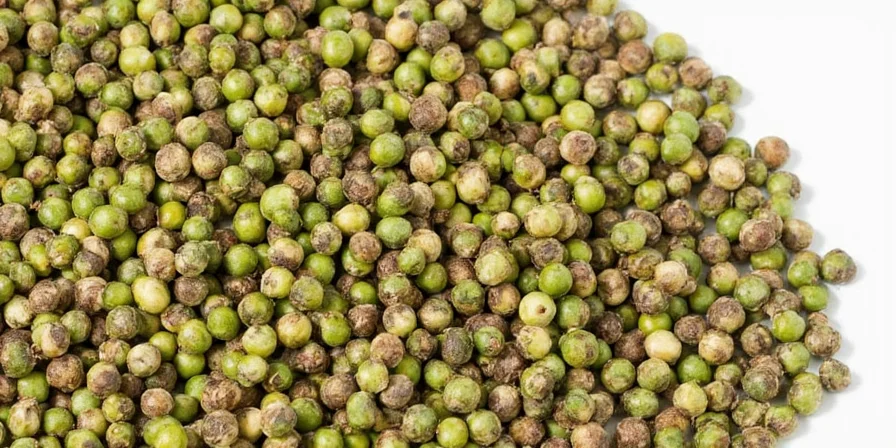
Green vs Black vs White: What's the Big Deal?
Let’s break it down like a spice showdown:
| Type | Processing | Flavor Profile | Best Use |
|---|---|---|---|
| Green Peppercorn | Harvested early, unfermented, often freeze-dried | Grassy, vegetal, slightly tart, mild heat | Sauces, creamy dishes, cocktails |
| Black Peppercorn | Sun-dried after harvest | Earthy, sharp, bold | Meat rubs, stews, soups |
| White Peppercorn | Soaked and husked, fully ripe | Mellow, musty, earthy with a back-of-the-throat heat | White sauces, béchamel, some Asian dishes |
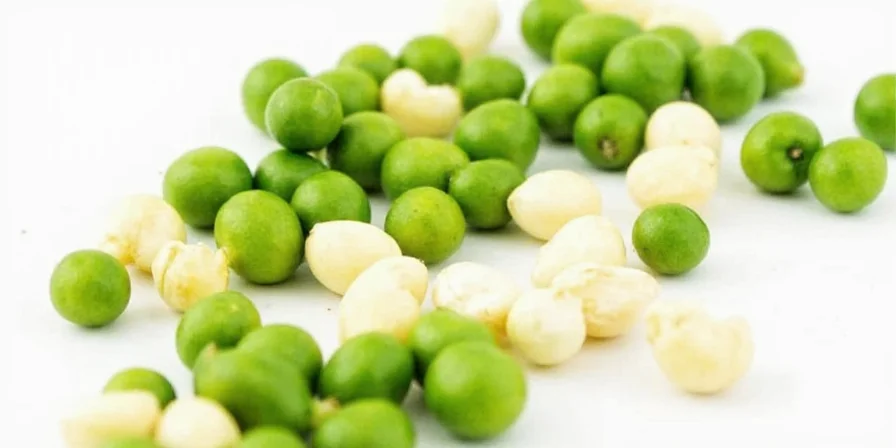
Top 10 Hacks for Using Fresh Green Peppercorns
- Crush, Don’t Grind: They lose flavor quickly once ground, so crush or lightly crack them before cooking.
- Infuse Oils & Vinegars: Toss a handful into olive oil or rice vinegar for an herbal kick.
- Upgrade Your G&T: Muddle a few into a classic gin and tonic for a botanical twist.
- Add to Creamy Sauces: They love dairy—think béarnaise, cream sauces, or even mashed potatoes.
- Pair with Fish: Especially fatty fish like salmon or trout—their bright flavor cuts through richness.
- Make a DIY Pepper Blend: Combine with pink and black for a rustic, colorful mix.
- Toast for Extra Depth: A quick toast in a dry pan unlocks hidden nutty notes.
- Use in Pickling Brines: Adds a spicy edge without overpowering the tang.
- Add to Battered Fried Foods: Crush and toss into tempura or beer batter for a surprise crunch.
- Try in Desserts?: Yes, really. A pinch in chocolate mole or spiced ice cream is divine.
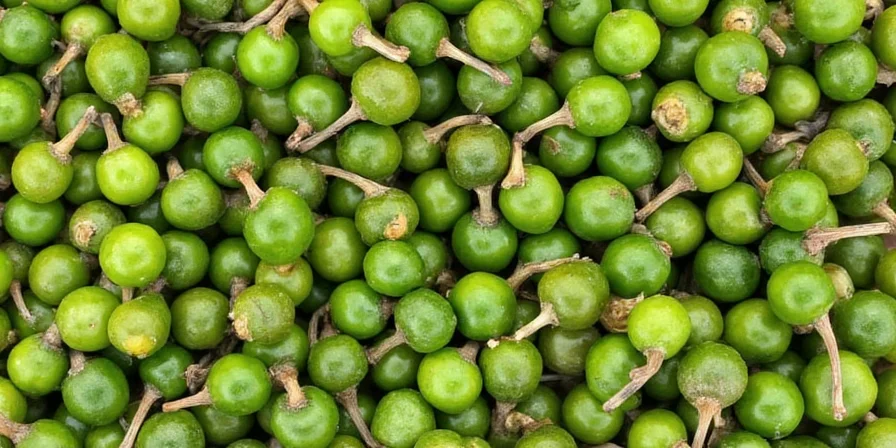
Flavor Pairing Perfection: What Goes With Green Peppercorns?
Think of green peppercorns as the extroverted friend who gets along with everyone. Here’s who they vibe with best:
- Cheeses: Brie, Camembert, goat cheese
- Fats: Butter, cream, coconut milk
- Veggies: Asparagus, zucchini, leeks
- Proteins: Chicken breast, pork chops, seafood
- Liquids: Wine-based reductions, citrus juice, vermouth
How to Store Them So They Don’t End Up Like Sad Basil
Storing fresh green peppercorns isn’t rocket science—but let’s be real, even rocket scientists mess up spice storage sometimes. Here’s what to do:
- Refrigerate if Fresh: If you’ve got them in brine or vacuum-packed, keep them chilled after opening.
- Freeze Dried Varieties: Freeze-dried ones last longer but still need cool, dark storage.
- Airtight Container Only: Moisture is the enemy. Seal them up tight.
- No Sunlight Zone: Keep away from windows unless you want them to become sad little raisins.
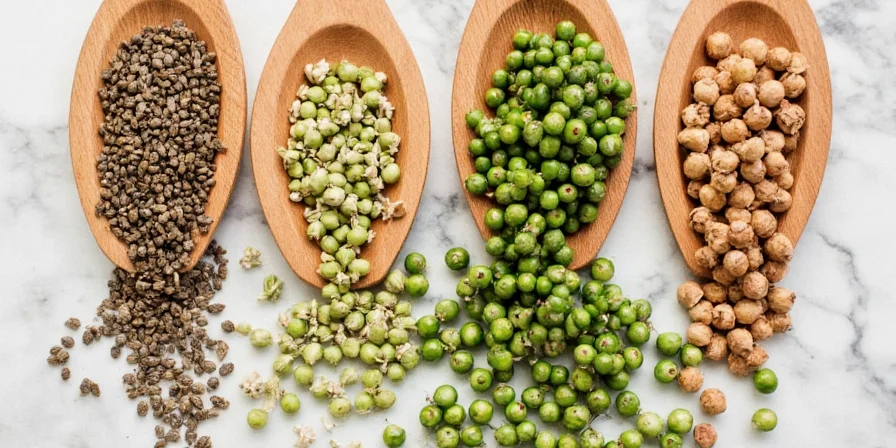
The Science Behind That Spicy Zing
Ever wonder why green peppercorns don’t hit you like black ones? The secret lies in the compound piperine, which gives pepper its signature burn. But since green peppercorns are picked early, they have less piperine and more essential oils, giving them a fresher, grassier bite.
Spice It Up for Health? You Bet!
Besides making food taste better, green peppercorns might also give your body a high-five:
- Digestive Aid: Stimulates digestive enzymes—say goodbye to post-lunch fatigue.
- Antioxidant Boost: Packed with compounds that fight free radicals like a microscopic ninja squad.
- Anti-Inflammatory: Could help reduce swelling and soreness—great for post-workout meals.
- May Improve Nutrient Absorption: Piperine enhances absorption of certain nutrients like curcumin.
From Stir-Fry to Steak – Creative Cooking Ideas
Ready to put theory into practice? Here are some drool-worthy ideas:
- Green Peppercorn Butter: Mix with softened butter, lemon zest, and garlic. Slather over grilled steak or corn.
- Tropical Fruit Salad: Sprinkle over mango and papaya with a drizzle of lime for a spicy-sweet combo.
- Green Peppercorn Cocktail: Muddle in a mojito or martini for a botanical flair.
- Spiced Hummus Twist: Blend into hummus or avocado spread for a herby zing.
- Asian Fusion Stir-Fry: Add to Thai basil pork or pad Thai right at the end for crunch.
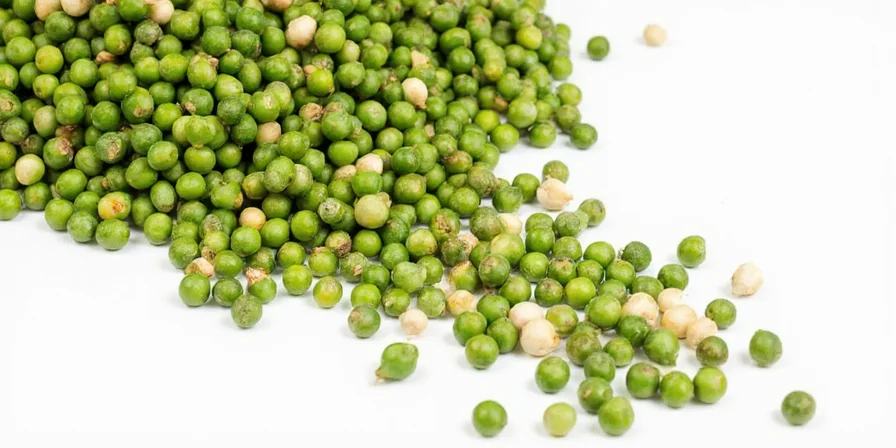
Debunking Myths: No, They Won’t Turn Your Tongue Green
Rumor has it that eating green peppercorns will dye your mouth like you just joined a Hulk fan club. Spoiler alert: not true. While they may leave a faint hue, it’s nowhere near “Hulk tongue” status. Other myths:
- Myth: They’re just unripe black pepper.
- Truth: Technically yes, but their processing method makes them unique.
- Myth: Can only be used in French cuisine.
- Truth: Totally untrue! Try them in Thai, Indian, Vietnamese—you name it.
- Myth: Not shelf-stable.
- Truth: If properly dried or preserved in brine, they can last up to a year.
Final Thoughts: Why Every Spice Cabinet Needs These Little Green Gems
Fresh green peppercorns are more than just a fancy garnish for chefs with aprons that cost more than your car. They bring flavor, versatility, and a bit of whimsy to your kitchen. Whether you're upgrading your weekday stir-fry or impressing guests with a peppercorn-crusted ribeye, these little green powerhouses deserve a spot on your counter—and maybe even your fridge door.
So go ahead—crack open a jar, get creative, and let your taste buds thank you later.

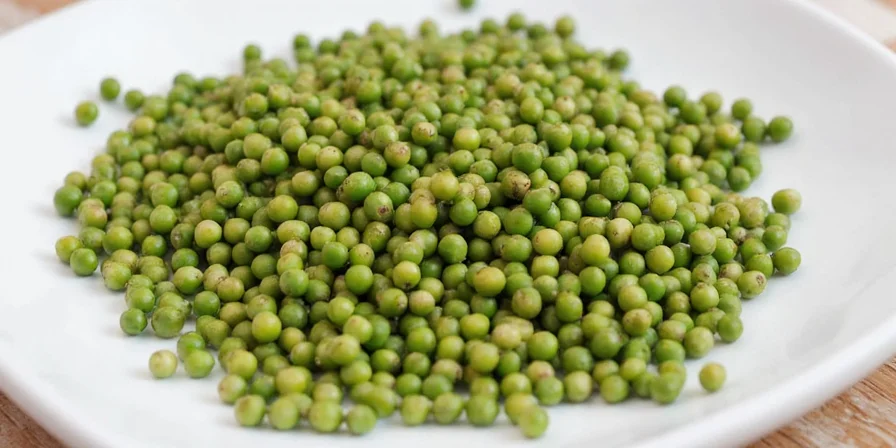









 浙公网安备
33010002000092号
浙公网安备
33010002000092号 浙B2-20120091-4
浙B2-20120091-4